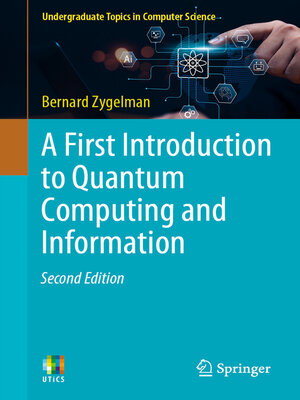A First Introduction to Quantum Computing and Information
ebook ∣ Undergraduate Topics in Computer Science
By Bernard Zygelman

Sign up to save your library
With an OverDrive account, you can save your favorite libraries for at-a-glance information about availability. Find out more about OverDrive accounts.
Find this title in Libby, the library reading app by OverDrive.



Search for a digital library with this title
Title found at these libraries:
| Library Name | Distance |
|---|---|
| Loading... |
This textbook addresses and introduces new developments in the field of quantum information and computing (QIC) for a primary audience of undergraduate students.
Developments over the past few decades have spurred the need for QIC courseware at major research institutions. To address this, the present 2nd edition of a highly accessible textbook/reference broadens the exposure of QIC science for the undergraduate market. The subject matter is introduced in such a way so that it is accessible to students with only a first-year calculus background. Greater accessibility allows a broader range of academic offerings.
Topics and features:
This unique introductory textbook can serve courses offered in university physics, engineering, math, and definitely computer science departments. Use of Mathematica software allows a fast learning curve for students who have limited experience with scientific programming.







